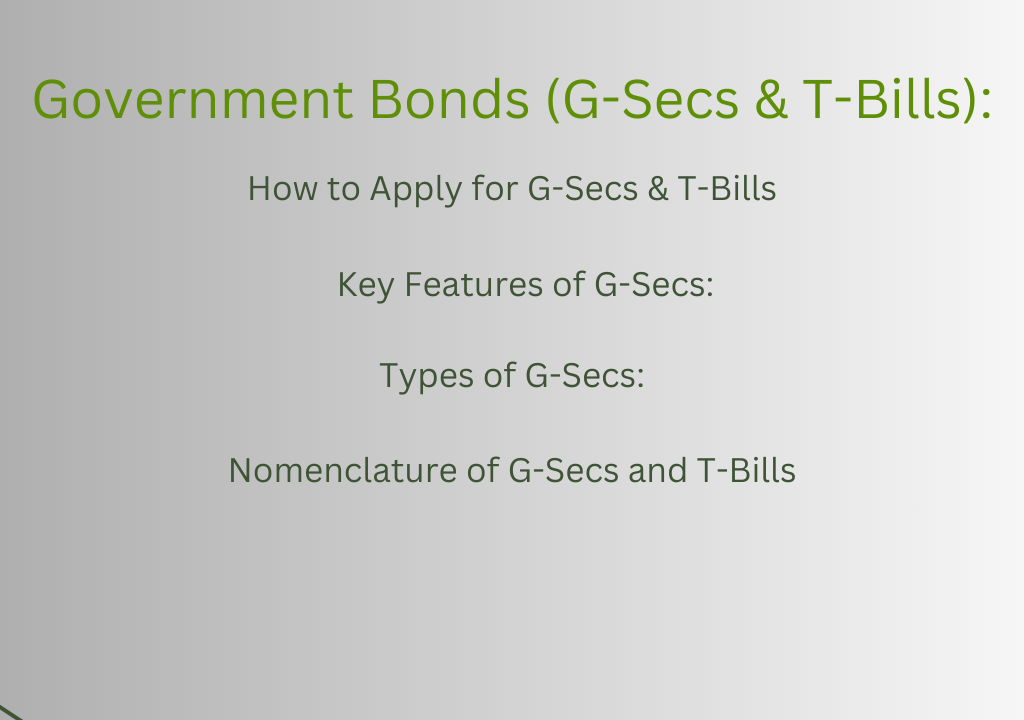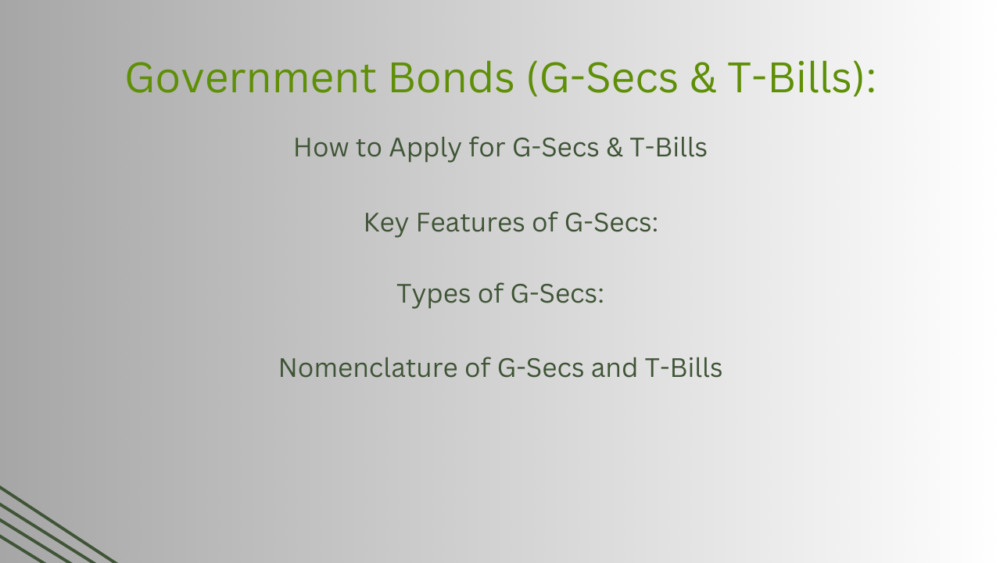
What Are Bonds?
Bonds are fixed-income instruments that represent a loan made by an investor to a borrower (typically the government or corporations). They are used to raise capital while providing investors with regular interest payments (coupon) and the return of the principal amount at maturity.
Types of Bonds in India
- Government Bonds (G-Secs & T-Bills): Issued by the central and state governments, these are considered low-risk investments.Government Securities (G-Secs)Government Securities (G-Secs) are long-term debt instruments issued by the Government of India or state governments. They are used to finance fiscal deficits and public sector projects.Key Features of G-Secs:
- Maturity period ranges from 5 years to 40 years.
- Fixed or floating interest rates, typically paid semi-annually.
- Highly liquid as they are traded in the secondary market.
- Safe investment backed by the sovereign guarantee.
- Available for retail investors via RBI Retail Direct and stock exchanges.
- Fixed Rate Bonds: Carry a constant interest rate throughout the tenure.
- Floating Rate Bonds (FRBs): Interest rates are linked to a benchmark and change periodically.
- Capital Indexed Bonds (CIBs): Principal amount is adjusted based on inflation.
- Sovereign Gold Bonds (SGBs): Issued by the government, linked to gold prices.
- Coupon Rate: The fixed interest rate paid on the bond (e.g., 7.26%)
- Maturity Year: The year in which the bond matures (e.g., 2033)
- Type: Whether it’s a fixed or floating bond
- Example: 7.26% GS 2033 (A G-Sec with a 7.26% annual interest rate maturing in 2033)
- Issued at a discount and redeemed at face value.
- No interest payments (zero-coupon bonds), but the difference between the issue price and redemption value acts as the return.
- Used by the government to manage short-term liquidity needs.
- Highly liquid and considered risk-free.
- The name includes the maturity period and issue date.
- Example: 91-Day T-Bill 15-Mar-2025 (91-day maturity T-Bill issued on 15th March 2025)
- RBI Retail Direct: The Reserve Bank of India’s platform allows individuals to invest directly.
- Stock Exchanges (NSE/BSE): G-Secs and T-Bills can be bought through brokers like equity shares.
- Banks & Primary Dealers: Some banks allow investments in bonds through net banking.
- Gilt Mutual Funds: Investing via mutual funds that specialize in government securities.
- Non-Competitive Bidding in RBI Auctions: Retail investors can participate in RBI auctions via registered banks and platforms like NSE GoBID.
- Register on the RBI Retail Direct website.
- Link your bank account for transactions.
- Place bids in government securities auctions.
- Hold bonds in dematerialized form with RBI.
- T-Bills have zero default risk as they are backed by the government.
- G-Secs can be traded in the secondary market, offering liquidity before maturity.
- Foreign Portfolio Investors (FPIs) can invest in G-Secs within prescribed limits.
- RBI conducts weekly auctions for T-Bills and periodic auctions for G-Secs.
- Sovereign Gold Bonds (SGBs) offer capital gains tax exemption if held until maturity


Add a Comment